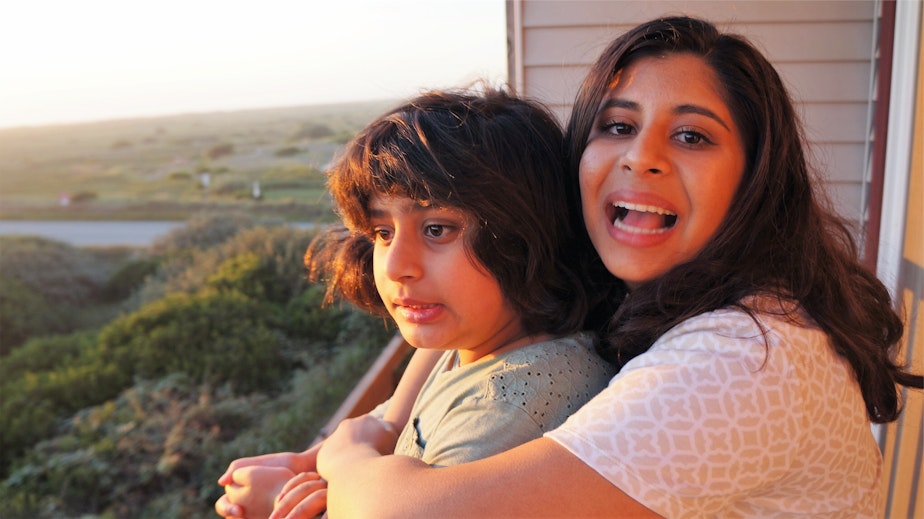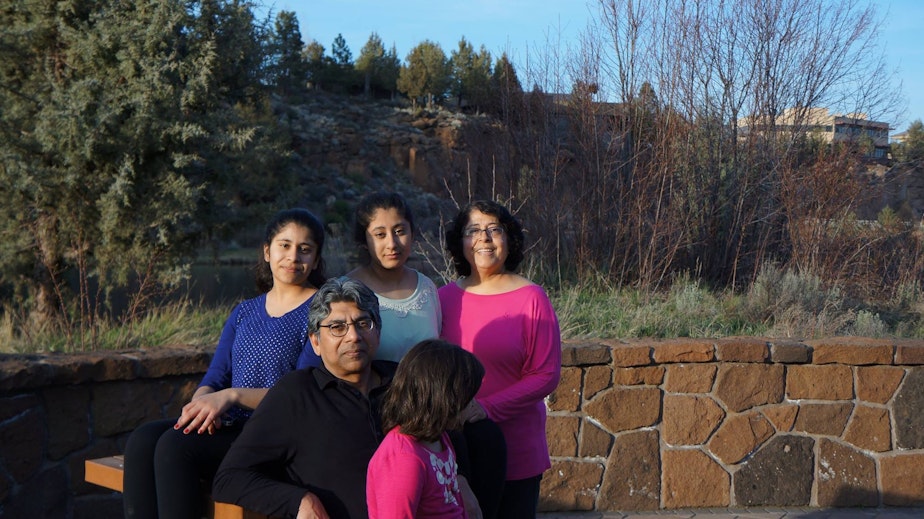My sister has autism, and school keeps her engaged. But how will we care for her after graduation?

My sister Saba waits eagerly for her yellow school bus every morning.
But Saba is a sophomore in high school. In three short years, she will leave our brick-bound high school, and her yellow school bus won't come by to pick her up any more.
My family is grappling with what life will look like for Saba, and for us, after graduation.
I love my sister Saba. She's stubborn, clever and gets what she wants. When she's in a good mood, she laughs a lot. But you know teenagers, they're moody.
Saba has autism. She's nonverbal, and she has trouble with basic tasks, like showering, changing her clothes or preparing food on her own.
School is so important to Saba. All day she’s on schedule, from field trips to art projects to riding her tricycle.
My family is preparing Saba for graduation in a few years by setting goals for her: to clean up after herself, do chores around the house and go to bed in a timely manner.

Sponsored
My dad, Nasir Ali, stays at home full-time. Every morning, he wakes up early to prepare Saba's breakfast: cinnamon raisin toast and an apple.
My aunt lives with us, and she takes care of Saba, too. My mom supports the family as a doctor. We still struggle with finding people to help care for Saba, especially when it comes to keeping her occupied.
“You have this person who cannot stay engaged in any activity for more than five minutes,” my dad said. “Then the biggest challenge becomes, what do you do with their time?”
Taking care of a family member with autism can be physically and emotionally demanding and expensive. Saba goes through food and clothing quickly and sometimes damages things around the house.
Without the support provided by the high school, we will need to grow Saba’s team. Not only to keep her engaged, but to build her independence.
Sponsored
Erica Gentry provides behavioral therapy services. She works with Saba to build life skills for a few hours every day. One of Saba’s most recent wins is buckling her seat belt by herself, which Erica says has been a year in the making.
With Erica’s help, Saba has started to do things she has never done before, like take out the trash, look both ways before crossing streets and using the key to unlock the car door.
Saba will probably never lease an apartment and live on her own. But Erica provides the training wheels on Saba’s bumpy road to independence.
“It’s like a wave, constantly,” Erica told me. “Big waves coming in all the time, crashing into the rocks. And you guys are the rocks, and she’s the wave. Sometimes you guys need a break.”
It’s true. Caring for a family member with autism is hard. But the journey of helping Saba become more independent will make things easier for the family and, more importantly, give Saba a higher quality of life.
Sponsored
If Saba is a wave, we’ll be there when she reaches the shore.

This story was created in KUOW's RadioActive Intro to Journalism Workshop for 15- to 18-year-olds, with production support from Kamna Shastri. Edited by Mary Heisey.
Find RadioActive on Facebook, Twitter and Instagram, and on the RadioActive podcast.
Support for KUOW's RadioActive comes from the Bill & Melinda Gates Foundation Discovery Center.



